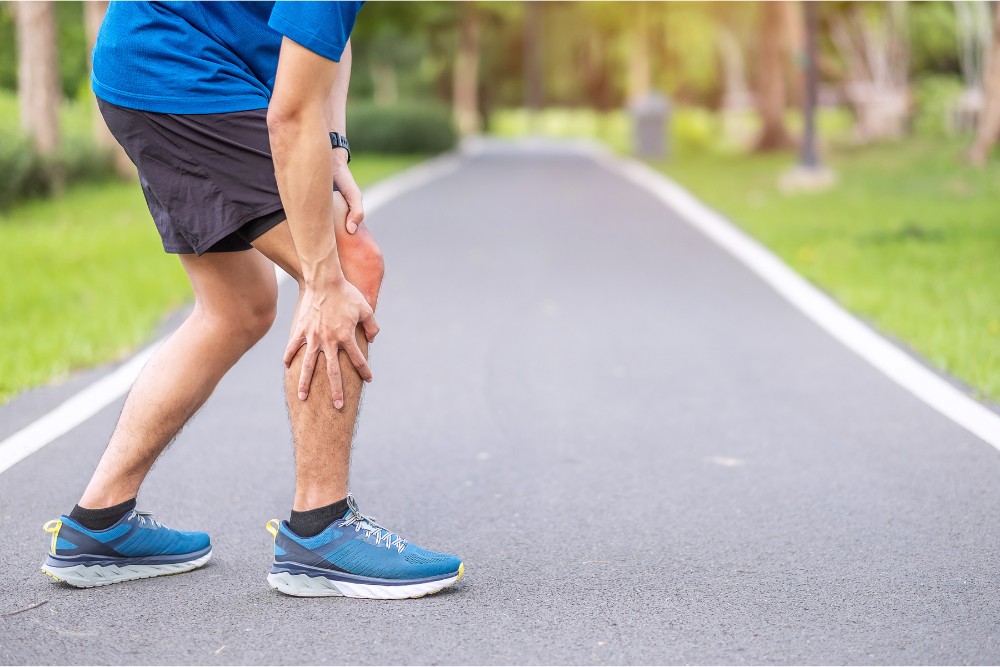Exercising During Illness: Is It Beneficial or Harmful
If you’re used to regular workouts, you may want to continue with them when you’re sick. But exercising during an illness isn’t always the best idea. Doing so may exacerbate your symptoms, requiring more time to heal. Of course, it may depend on the sickness you’re dealing with and the type of physical activity you prefer.
When you’re suffering from a minor illness, mild exercise may be beneficial. Easy activities, including walking, gardening, or golfing, and other gentle physical activity increase circulation and boost immune function. But don’t overdo it, or you may worsen your condition. If you’re unsure if it’s safe to exercise while sick, speak to your doctor before you begin.

When to Avoid Exercising During Illness and Why?
Though exercising when sick isn’t always prohibited, it isn’t recommended for certain illnesses. For instance, if you have a cold causing upper respiratory issues, it’s best to avoid strenuous activities. If you exercise, the condition may worsen, affecting cardiac, pulmonary, and skeletal functions, as well as how well you breathe.
Some symptoms result from your body fighting an infection, requiring plenty of rest to do its job. These issues include fever, diarrhea, or vomiting. You may feel like exercise during such illnesses will boost your immune system, but the opposite is true. The energy used will deplete what your body has stored, making it harder to combat your sickness.
When dealing with such symptoms, you lose fluids from sweating and those unpleasant bodily functions, often resulting in dehydration. Working out will force your body to overheat, increasing moisture loss. Taking it easy and drinking water or electrolyte-filled beverages will prevent a worsening condition and speed up recovery.
When is mild physical activity good?
In general, mild illnesses like a simple head cold don’t always mean you have to skip physical activity and exercises entirely. Going for a walk when the weather is pleasant can actually be very beneficial.
It’s commonly known that physical activity may trigger asthma symptoms, causing narrowed airways, chest tightness, and breathing issues. But this doesn’t mean you should avoid exercise with asthma. In fact, mild exercise strengthens the lungs and chest muscles as long as you do it properly. Start slow and choose safe options, including walking, hiking, gymnastics, golfing.
Exercise during illnesses related to the heart is also beneficial since even mild activity strengthens this muscle. Physical activity also helps with blood pressure, blood sugar, and cholesterol management. Of course, you do need to be careful not to overdo it, especially after a heart attack or surgical procedure. Discuss the best workout options with your doctor before you begin.
As with cardiovascular conditions, exercise is advantageous for those with diabetes. In addition to lowering blood sugar levels, physical activity reduces insulin resistance and helps with weight management. It is recommended to test blood sugar levels before and after a workout to avoid hypoglycemia or other complications.
The brain controls every function and movement of the entire body. Neurological conditions, such as stroke, infection, brain injury, and dementia, alter how the brain does its job. But exercising during these illnesses often improves symptoms by increasing blood flow to the brain. Physical activity also improves muscle strength, mobility, and cognition while reducing depression, stress, and anxiety.
When should you never exercise when being sick?
Never exercise if you have symptoms are below your neck. Also, always skip exercise if you have a fever, whether it’s from the flu or another illness.
Resources:
- PubMed, April 1996, Sport, exercise, and the common cold
https://pubmed.ncbi.nlm.nih.gov/16558389/ - NYU Langone Health, April 21, 2020, When it’s safe to exercise after getting sick
https://nyulangone.org/news/when-its-safe-exercise-after-getting-sick#:~:text=Don’t%20exercise%20when%20symptoms,overtime%20to%20fight%20the%20infection - Johns Hopkins Medicine, Asthma and Exercise
https://www.hopkinsmedicine.org/health/conditions-and-diseases/asthma/asthma-and-exercise - Medline Plus, Being active when you have heart disease
https://medlineplus.gov/ency/patientinstructions/000094.htm - Harvard Health Publishing, August 2, 2023, The importance of exercise when you have diabetes
https://www.health.harvard.edu/staying-healthy/the-importance-of-exercise-when-you-have-diabetes - PMC, Aug. 22, 2023, Physical activity intervention for the prevention of neurological diseases.
https://pmc.ncbi.nlm.nih.gov/articles/PMC10442603/#:~:text=Physical%20activity%20for%20individuals%20with,and%20promote%20overall%20well%E2%80%90being - American Heart Association, January 13, 2021, By Genaro C. Armas, American Heart Association News, Is it OK to exercise when you’re sick,
https://www.heart.org/en/news/2021/01/13/is-it-ok-to-exercise-when-youre-sick
This article is for educational and informational purpose only and does not substitute for professional medical advice. For any questions about your own health condition, speak to a qualified physician or healthcare provider.







Leave A Comment